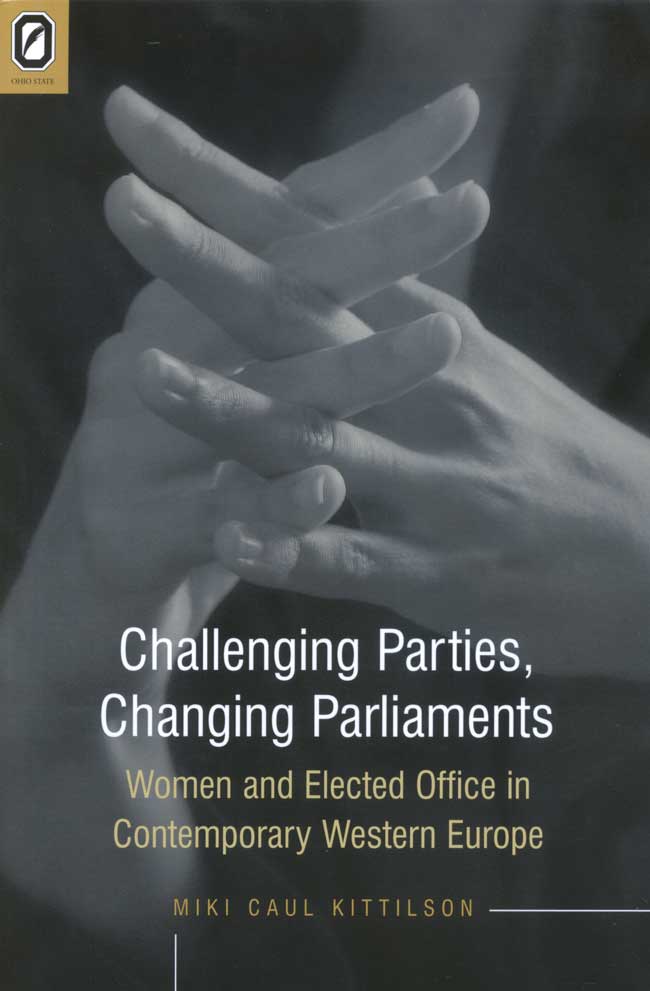Challenging Parties, Changing ParliamentsWomen and Elected Office in Contemporary Western EuropeMiki Caul KittilsonParliaments and Legislatures |
 1/20/2006 POLITICAL SCIENCE / Government / Legislative Branch 191 pp. 6x9  $24.95 paper 978-0-8142-5148-5 Add paper to shopping cart $89.95 cloth 978-0-8142-1015-4 Add cloth to shopping cart $14.95 CD 978-0-8142-9091-0 Add CD to shopping cart Shopping Cart Instructions Review/Change Shopping Cart & Check-out | |||
|
“Kittilson asks why some parties respond to pressure to promote women candidates and others do not. Her attention to the party-parliament nexus provides a nice link between the women and politics literature and the party politics literature. This book will be valued by many scholars.” —Cindy Simon Rosenthal, University of Oklahoma In Challenging Parties, Changing Parliaments, Miki Caul Kittilson examines women’s presence in party politics and national legislatures, and the conditions under which their entrance occurs. She theorizes that parties are more likely to incorporate women when their strategy takes into account the institutional and political “opportunity structures” of both the party and party system. Kittilson studies how women pressed for greater representation, and how democratic party systems responded to their demands. Research on women’s representation has largely focused at the national level. Yet these studies miss the substantial variations between parties within and across European democracies. This book provides systematic cross-national and case study evidence to show that political parties are the key mechanism for increasing women’s parliamentary representation. Kittilson uncovers party-level mechanisms that explain the growth in women’s parliamentary participation since the 1970s in ten European democracies. The inclusion of new challengers in party politics is often attributed to mounting pressures from activists and public opinion at large. This book contradicts the conventional wisdom by demonstrating that women’s gains within parties flow not only from pressure from party supporters, but also from calculated efforts made by the central party leadership in a top-down fashion under specific circumstances. Certainly women’s efforts are essential, and they can be most effective when they are framed, timed, and targeted toward the most opportune structures within the party hierarchy. Kittilson concludes that specific party institutions encourage women’s ascendance to the top ranks of power within a political party. Miki Caul Kittilson is assistant professor in the department of political science at Arizona State University. | ||||

